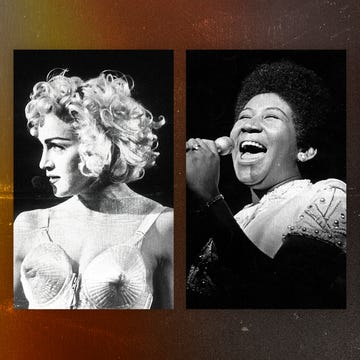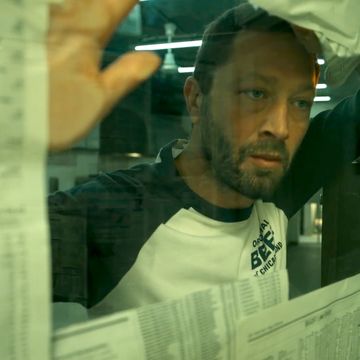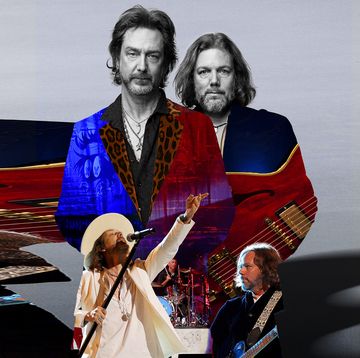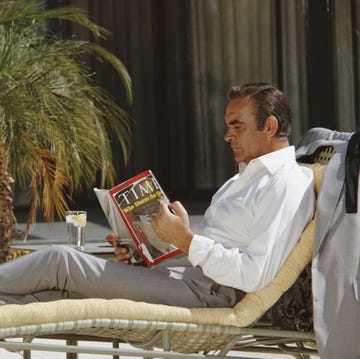Ernest Hemingway had Max Perkins. Robert De Niro had Martin Scorsese. Jimi Hendrix, the electric guitarist from some unnamed galaxy, had Eddie Kramer. Jimi's astonishing playing needed a world-class engineer to help him cultivate his powers. This week sees two of Hendrix's posthumous classics, Cry of Love and Rainbow Bridge, rereleased and remixed by Kramer, and this month the biopic Jimi: All Is by My Side will be out. We recently spoke with Kramer about Jimi's entire career, his endlessly inventive playing, songwriting, Paul McCartney, Brian Jones, and the part he played in the life and legacy of history's greatest guitarist. Here's what he had to say:
The reason it took so long for these albums to be rereleased is because there's so much stuff in Jimi's library. It took lots of time going through the work and getting it reorganized. First we had to reestablish the rest of the catalogue, which took some time. There were always plans to reissue these two albums. They just had to wait their turn.
I wondered, "How in hell will I be able to record this guy?"
When I first started working with Jimi, I wondered, "How in hell will I be able to record this guy?" Sonically, there was a conundrum: How do I make him sound as good or better in the studio than he already was live?
But it worked out fine when I first met him at Olympic Studios. Jim was very shy, just sat in the corner as the equipment was being set up. Then he plugged in and I heard this enormous sound. I said, "Okay, what can I do here?" I ran into the control room, started twiddling knobs, doing my thing. Jimi came into the control room and I played him back something. He got this big smile on his face. Then he ran out into the studio and started fiddling with the amp and pedals. And I ran tape on that. I just wanted to expound upon the sound that was there. This began our game of up the ante. We were always trying to top each other.
The thing you need to remember is it was fun!The thing about Jimi that a lot of people don't know is he had an acerbic sense of humor. So our sessions were just a lot of fun.
How it all began. I first worked with Jimi in January of '67. At this point he'd recorded some singles, like "Hey Joe." He's in England and everywhere he plays he blows people's minds. As the Monterey Pop Festival is being prepared, several people in England hear about it, including Paul McCartney. Paul called the promoters of the concert and said, "You've got to put Jimi Hendrix on this bill." Because Paul made that call, it changed the entire course of Jimi's career.
When Jimi was going to make Are You Experienced [his debut], Chas Chandler [Jimi's manager] knew he didn't have any original material. Knowing Chas, he probably said, "Jimi, you better get your ass in gear and write some songs." So Jimi began writing. It was Chas's persistence that got Jimi to come up with things like "Purple Haze" and "Manic Depression." Jimi was always riffing and Chas would say, "Let's try something with that riff." Soon, the songs poured out quickly. From his debut right up to Cry of Love.
What bothers me today is people recognize Jimi as a great guitarist. But only down the road do they say, "He's also a pretty good songwriter." He was a great songwriter. Listen to "Freedom" on Cry of Love. I'm fortunate enough to have all the original tapes. So I can break the tracks down for every song. That tune has about five sections. And yet it's so catchy and well-composed. Jimi, as you probably know, could play rhythm and lead at the same time. Which is one reason those things sound so amazing.
He was such a good songwriter that I'm doing an album now called Jimi Hendrix — Acoustic Generations. I'm getting young people to record Jimi's songs acoustically. I've got Jason Mraz, Grace Potter, Mike McCready [of Pearl Jam]. Doing the songs acoustically is a real challenge. But it's also very doable. Because the songs are so strong.
Jimi was obsessed with his dreams and getting things down on tape that came to him in the middle of the night. Phasing, for instance, that whooshing sound, was something he heard in a dream.
During the recording of Electric Ladyland, Brian Jones [founder of the Rolling Stones] stumbled into Electric Lady Studios, out of his mind, and started to play piano on "All Along the Watchtower." Jimi looked at me. The look was, "Can we get him to stop?" Jimi was so polite, never wanted to hurt anybody. But he was in the middle of a session and Brian wasn't doing well. So I said, "Brian, come into the control room and listen to what we've done." He staggered into the control room and fell, right in front of the console. Then he fell asleep. And we finished the track.
Jimi loved Bob Dylan. In Jimi's flight bag there were check books, money, guitar picks. But one item in that bag that Jimi kept with him constantly was this big Bob Dylan songbook. He thought Dylan was such a great poet. But Jimi's writing, I think, is also amazing poetry.
Jimi's mind was a musical sponge. He learned from everything. If a garbage can rolled down the street, he'd think, "That's an interesting sound. How can I get that sound?" That's the thing about Jimi. His mind was open to everything.













